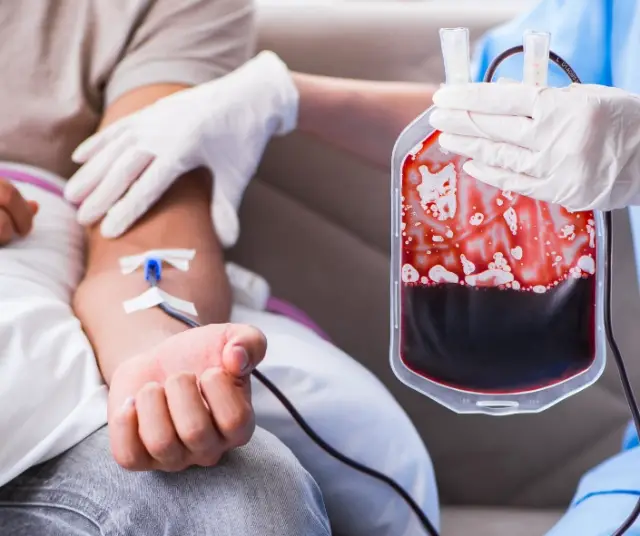Every year, June 14 is celebrated as World Blood Donor Day . This special day serves to recognize and thank people who altruistically donate their blood to save lives around the world. Blood is a vital resource that cannot be manufactured artificially, so voluntary, unpaid donation is crucial to ensure there is enough safe blood available when needed.
Origins and Meaning of World Blood Donor Day
World Blood Donor Day was established by the World Health Organization ( WHO ) in 2004, with the aim of raising awareness of the need to donate blood regularly and voluntarily to ensure a constant supply of safe blood for transfusion. The date of June 14 was chosen to commemorate the birth of Karl Landsteiner, an Austrian immunologist who discovered ABO blood groups, a fundamental milestone in the history of transfusion medicine.
The Importance of Donating Blood
Donating blood is an act of generosity that can make a big difference in the lives of those who receive it. Each donation can save up to three lives as blood can be separated into components such as red blood cells, platelets and plasma, which are used to treat a variety of medical conditions, from serious accidents to chronic diseases such as anemia and cancer.
However, despite the importance of blood donation, many countries face shortages of safe and sufficient blood. Factors such as lack of awareness, fear of the needle, myths about blood donation and lack of access to donation services are some of the reasons behind this shortage. Therefore, World Blood Donor Day is an opportunity to educate the public about the importance of blood donation and encourage more people to become regular donors.
The Blood Donation Process
Donating blood is a simple and safe process that can be carried out at blood donation centers, hospitals or other designated locations. Prior to donation, a donor eligibility assessment is performed to ensure the safety of both the donor and recipient. This includes questions about the donor's health, recent travel, medical history, and lifestyle.
Once the donor's eligibility is confirmed, the blood donation proceeds. The process itself usually takes 10 to 15 minutes and is performed with a sterile needle inserted into a vein in the donor's arm. During donation, about 450 milliliters (about a pint) of blood is drawn. After donation, the donor is provided with refreshments and is advised to rest for a few minutes before returning to normal activities.
Once collected, the blood is laboratory tested for possible infections and processed into components that can be stored and used as needed. Red blood cells are used to treat anemia and blood transfusions, platelets are used to treat poor blood clotting, and plasma is used to treat severe burns, shock, and immune deficiencies.
Benefits for Donors
In addition to the satisfaction of knowing they are helping to save lives, blood donors can experience several personal benefits by donating blood regularly. Some of these benefits include:
Improved Cardiovascular Health: Donating blood can help reduce the risk of cardiovascular disease by lowering iron levels in the body, which can reduce the risk of plaque buildup in the arteries.
Immune System Boost: Donating blood can boost the immune system by promoting the production of new blood cells and removing damaged or aging cells from the body.
Free Health Screenings: Before each donation, free health screenings are performed, which can help identify possible health problems such as high blood pressure or abnormal iron levels.
Sense of Purpose and Emotional Well-being : Many people find that donating blood gives them a sense of purpose and contribution to the community, which can improve their emotional and mental well-being.
Challenges and Myths of Blood Donation
Despite the numerous benefits and importance of blood donation, there are several challenges and myths that may deter people from becoming donors. Some of the common challenges include:
Fear of Needles: Fear of needles is one of the most common reasons why people avoid donating blood. However, for many people, overcoming this fear can be an empowering and rewarding experience.
Cultural and Religious Beliefs: In some cultures and religions, there are beliefs that discourage or prohibit blood donation. It is important to respect these beliefs, but also educate about the importance of blood donation and how it can save lives.
Myths about Blood Donation: There are several myths about donating blood, such as the fear that donation will weaken the body or cause health problems. In reality, blood donation is safe and does not significantly weaken the donor.
Lack of Awareness and Access: Many people are simply not aware of the need for blood donation or do not have access to nearby donation services. Awareness and availability of donation services are key to addressing this challenge.
How can you help
If you are interested in becoming a blood donor, here are some steps you can take:
Get informed: Learn more about the importance of blood donation and how you can help save lives.
Find a Donation Center: Research where you can donate blood in your area and make an appointment to donate.
Share Your Experience: After donating blood, share your experience with friends and family to inspire others to do the same.
Regular Donation: Consider becoming a regular donor to ensure a constant supply of safe blood.
Participate in Blood Donation Events: Look for local blood donation events in your community and participate to show your support.
World Blood Donor Day is an opportunity to recognize and thank people who make a significant difference in the lives of others through blood donation. By donating blood, you are helping to save lives and provide hope to those who need it most. If you haven't donated blood yet, consider taking the plunge and join the cause to help build a world where safe blood is always available to those who need it. Remember, a donation can mean the difference between life and death for someone in need.
